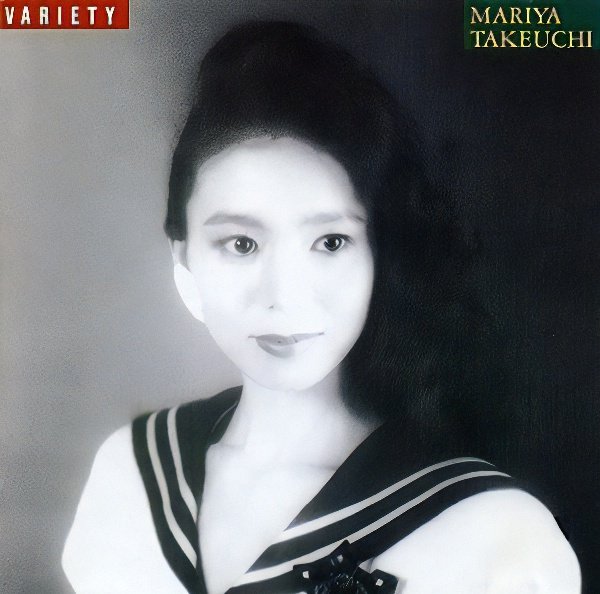Music Review | Mariya Takeuchi’s Variety – The Best 80s Pop Album You’ve Probably Only Discovered on TikTok
Album Review: Mariya Takeuchi’s Variety – The Best 80s Pop Album You’ve Probably Only Discovered on TikTok
Variety, the 1984 masterpiece from Mariya Takeuchi, is like one of those rare vintage vinyl finds you might stumble upon at a flea market—except, you know, instead of costing $2, it’s blowing up on streaming platforms and getting hundreds of thousands of views on YouTube. Let’s be real: you’re probably here because of Plastic Love, the album’s viral standout that’s become synonymous with the city pop resurgence. You know, that impossibly groovy track with a bassline so infectious it probably caused the CDC to issue warnings in the mid-80s (if not, they missed a serious public health hazard).
But Variety is more than just Plastic Love, even if that’s the song that made all of us re-evaluate why we weren’t born in Japan in the 1980s, wearing oversized blazers and cruising neon-lit streets in a Toyota Celica. This album has layers. And no, I don’t mean layers like an onion; that’s a cliché. More like a mille-feuille of synth, funk, and sheer pop brilliance.
The Context
Produced by Tatsuro Yamashita, who just happens to be Takeuchi's husband and one of Japan's greatest musical exports (sorry Hatsune Miku, but let's stay in reality for a moment), Variety is peak city pop. Think of it as the Japanese answer to 80s Western pop with more sophistication and far fewer hair-metal guitar solos (thank goodness). The album was part of a wave of music that combined jazz, funk, and Western pop influences, which somehow led to Japan creating a genre that outdid America in the very thing America prided itself on.
It’s like when your friend borrows your outfit and ends up looking ten times better than you ever did in it—thanks, Japan.
Standout Tracks
1. Plastic Love
Ah, yes. The track. Its moody, sultry vibe makes you feel like you’re in a movie about heartbreak, except you're not the main character—you're the cool side character who wears sunglasses at night and has their life together (at least on the surface). The chorus is smooth like butter and just as fattening—it sticks with you, repeating in your head long after the song ends. The perfect mix of melancholic lyrics (“I’m just playing games, I know that’s plastic love”) and a bassline that’s a better pick-me-up than coffee, it’s no wonder Plastic Love has become the holy grail of city pop. Heck, even if you don’t speak Japanese, you know she’s singing about heartbreak. The language of disco-funk pain is universal, apparently.
2. Mou Ichido
It’s like someone took a Bee Gees song, gave it a vacation to Tokyo, and told it to loosen up. The funky guitar riffs and jazzy keyboard solos suggest you should be dancing (though perhaps awkwardly, given the 80s choreography standards). There's a sophistication here that doesn't rely on gimmicks; just pure, tight musicianship.
3. Futari Dake no Ceremony
Takeuchi slows things down a little, delivering a wedding ballad that sounds like it should play as the credits roll in a rom-com where the quirky couple finally decides they can make a relationship work despite the earlier scene with the dramatic break-up in the rain. It’s sweet but not saccharine—elegant yet modern. It’s like ordering dessert but telling yourself it’s okay because it has fruit on it.
4. Honki de Only You (Let’s Get Married)
You ever meet someone who’s so charming they can convince you to make terrible decisions? This song is that person. Light, bubbly, and entirely too catchy for its own good. The saxophone solo is particularly dangerous. It’ll lull you into thinking, “Sure, I could get married after one date. Why not?”
5. Broken Eyes
Now this one—this is for the soundtrack of your slow-motion walk into a bar after you've realized your ex is with someone else but you’re totally fine (you’re not). The yearning in her voice matches the saxophone in the background, which, let’s be real, is probably also crying on the inside. It’s an emotionally manipulative track, but hey, what good pop song isn’t?
The Production
Tatsuro Yamashita’s production is slicker than the hair gel that kept Patrick Bateman's comb-back in place. From the intricate guitar work to the layering of synth and percussion, the album sounds like it was engineered by someone who made a deal with the devil to perfect 80s pop. Variety doesn’t sound dated either. In fact, play it for your friends and tell them it’s some obscure indie artist from Brooklyn—most of them will probably buy it. It’s that fresh.
The Legacy
Now, let’s address the elephant in the room: Why did it take so long for the rest of the world to catch on to Variety? Was it a conspiracy? Were we all too busy with Madonna and Michael Jackson to notice this absolute gem of an album sitting in our peripheral vision? Perhaps. But thanks to the internet’s bottomless pit of “suggested videos” and an endless stream of TikTok trends, Variety has found a whole new audience. Its allure is timeless, and its hooks are irresistible.
So while we could be cynical and chalk it up to mere nostalgia, the truth is, Variety is just that good. And it’s about time we all recognized it.
In conclusion, if you haven’t yet taken the plunge into Mariya Takeuchi’s Variety, consider this your formal invitation. You’ll get smooth grooves, killer basslines, and saxophone solos that will make you feel emotions you didn’t even know existed. If nothing else, you’ll finally understand what all those TikTok remixes were about.

